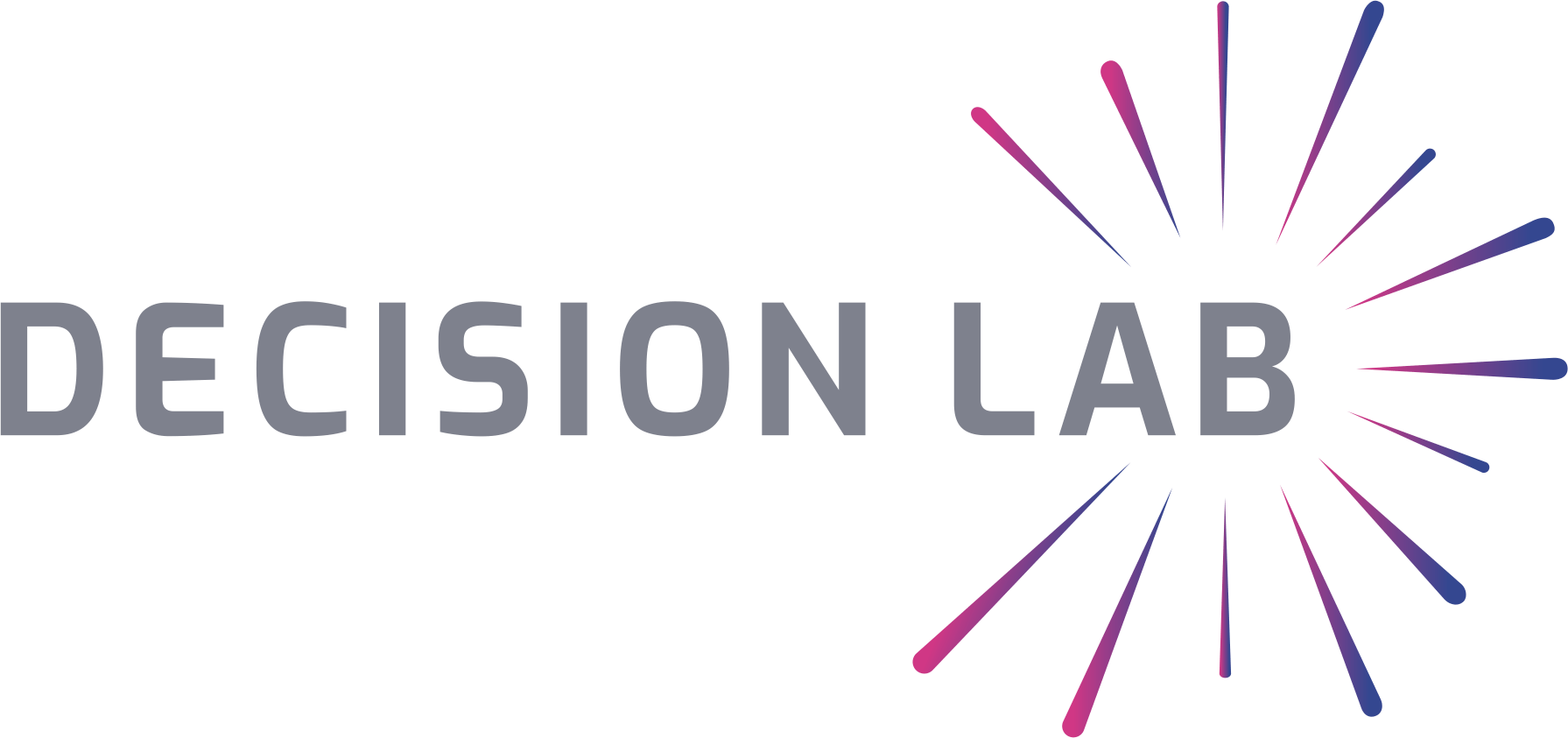What we do
Decision Lab works across multiple sectors, impacting the lives of millions of people in the UK.
Expertise
The blend of skills, methods and experience at Decision Lab produce transformational industry insight and methodologies.
We use best of class tools at Decision Lab and invest time in innovating, developing, understanding, and applying new techniques and technologies.
The challenges our clients pose us inspire our creativity, skill, talent, and passion, resulting in the best possible outcome.
Simulation
Simulation modelling is concerned with creating a virtual representation of one or more systems or processes.
In contrast to a physical model, such as scaled version of a car, it is computer based. The flexible nature of simulation modelling means virtually any system could be modelled. Applications are therefore vast.
It is normally done to make predictions about the system, possibly under different configurations or scenarios (“what-if” scenarios). This is particularly useful in cases where doing experiments on a real system would be impossible, for example if it doesn’t exist yet, or if real experiments would be too risky or costly. A simulation model, in contrast, provides a risk-free environment to perform experiments. It also easily allows for uncertainty to be accounted for by running the simulation many times.
In addition to its flexibility, another major advantage of simulation modelling over modelling approaches is that, with the right tools, it can show scenarios playing out over time in 2D or 3D. For example, we could see items moving along production lines if simulating a manufacturing process. This can help significantly with aiding understanding.
While a simulation model could be any virtual representation, however simple, Decision Lab specialises in the following three main types of methods for simulating complex business problems:
Discrete Event Modelling
This is a process-centric approach. We have used it to model manufacturing, maintenance, and customer service processes.
Agent-Based Modelling
This approach is centered around modelling interactions between many different objects or entities. Examples of where we have used this include modelling supply chains and modelling pedestrians moving around airports or retail spaces.
System Dynamics
This is generally used at a higher level of abstraction than the other methods and is good for considering global dependencies. For example, we’ve used this to model the spread of diseases.
A lot of power comes from combining these methods using hybrid approaches, which is where Decision Lab has considerable expertise.
We love sharing ideas, get in touch with your simulation challenge.
Optimisation
Optimisation modelling refers to a collection of mathematical prescriptive analytics techniques to find one or more “best” solutions to a problem.
Optimisation models are framed in terms of the following three types of components:
Objective(s)
These define what we are seeking to maximise or minimise and therefore define what we mean by the “best” solution. Common examples are profit, cost, or time. When there are multiple objectives (multi-objective optimisation) there may be many possible optimal solutions.
Decision Variables
These are the variables that the optimisation model “controls”. The model seeks to find the combination of decision variable values to best meet the objective(s). The final choice of decision variables defines the solution. An example could be the volume of a product a manufacturer produces each day.
Constraints
Most business problems include some constraints, which together mean some solutions are not acceptable. For example, the amount of product a manufacturer could produce would be limited by the capacity of their machines as well as labor etc.
Optimsation modelling can be a valuable tool in decision-making in a lot of contexts, particularly in large problems where a human cannot easily know the best solution and exhaustively searching through all possible solutions would take too long. A large number of techniques exist, and their suitability depends on the business problem characteristics. Decision Lab has experience in a wide variety of techniques, and crucially in finding the right one for different problems and framing the problem appropriately.
We love sharing ideas, get in touch with your optimisation challenge.
Data Science
Let us extract insight from your data to unlock value across functions within your organisation.
Artificial intelligence is no longer a niche area accessible to limited applications. It is rapidly expanding, and the value it brings has been empirically proven.
At Decision Lab, our data scientists are passionate about bringing insight out of your raw data, and translating it into value for your organisation. Our team works with you to understand the business needs, and through our flexible approach, creates bespoke models to solve your problem. Whether you need to explore your hypotheses via a proof of concept, or a full end to end solution, from development to deployment, our team can help you.
Deep Reinforcement Learning
Our goal at Decision Lab is to design AIs using cutting-edge techniques and expert knowledge to revolutionise decision-making. By supporting humans in making sense of the deluge of information that they may be faced with at various critical strategic times, we aim to provide our clients the tools they require to make both rapid and evidence-based decisions on the frontline.
DRL has the potential to be a ground-breaking technology capable of solving problems too complex for more traditional machine learning techniques. Certain problems requiring strategic and potentially sequential decisions are often characterised by complex dynamic environments, and where training data is scarce or inexistent. In those cases, more conventional machine learning techniques, such as supervised and unsupervised learning, maybe ineffective. This is where this cutting-edge technique can revolutionise the way we can support a diversity of functions in a range of sectors. While DRL is still in its infancy, this technique has been successfully implemented to support with Command and Control in the defence context; treatment dosing regimen, and clinical trial design in the healthcare sector; and text mining in various contexts to mention a few applications.
Our team of DRL specialists apply innovative techniques to develop bespoke AIs and draw both from our internal expertise and your team of subject matter experts to ensure the user requirements are met and the tools are fully usable.
If you would like to learn more about what DRL is and how it can help the problem you are trying to solve, contact us!
Collaboration
Got a project?
Let’s talk.
We’re a team of innovators who are excited about unique ideas and help companies to create amazing solutions.







